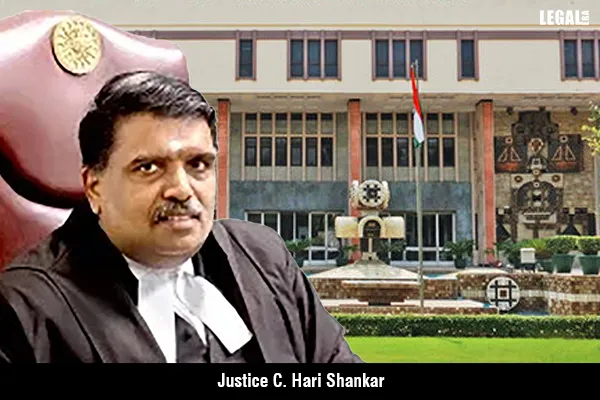Delhi High Court Holds That Courts Can Restrain Foreign Proceedings Under Section 9 Of The Arbitration Act
Justice C. Hari Shankar of the Delhi High Court has affirmed that Indian courts possess the authority under Section 9;

Delhi High Court Holds That Courts Can Restrain Foreign Proceedings Under Section 9 Of The Arbitration Act
Justice C. Hari Shankar of the Delhi High Court has affirmed that Indian courts possess the authority under Section 9 of the Arbitration and Conciliation Act, 1996, to issue injunctions preventing parties from continuing with foreign court proceedings or enforcing foreign decrees that could undermine arbitration processes in India.
The court clarified that its power to grant an anti-suit or anti-enforcement injunction is included in the broader mandate of providing interim measures under Section 9. The ruling emphasized that these injunctions serve to protect the integrity of the arbitration process, ensuring that it is not derailed or prejudiced by actions in foreign jurisdictions.
The case involved a dispute between Honasa Consumer Limited (the petitioner) and RSM General Trading LLC (the respondent). The parties had an Authorized Distributorship Agreement (ADA) that included an arbitration clause specifying that any disputes would be resolved through arbitration in New Delhi, under Indian law. Despite this, the respondent initiated a lawsuit in Dubai, alleging a breach of the ADA by the petitioner. The Dubai Court ruled in favor of the respondent, awarding substantial damages.
In response, the petitioner approached the Delhi High Court, seeking an injunction under Section 9 to prevent the respondent from enforcing the Dubai court’s decree. The petitioner argued that the Dubai proceedings were initiated in bad faith to circumvent the arbitration agreement and the exclusive jurisdiction clause.
Justice Shankar, in his ruling, stated that the law should not be manipulated by litigants to gain unfair advantages. The court criticized the respondent’s actions as an abuse of the legal process, intended to undermine the arbitration agreement. The court held that such conduct could not be condoned, as it would compromise the integrity of the judicial system.
The court also addressed arguments regarding the applicability of Sections 13 and 44A of the Code of Civil Procedure (CPC), which pertain to the enforcement of foreign decrees in India. The court clarified that these provisions do not limit the power of the court under Section 9 of the Arbitration Act to issue injunctions protecting the arbitration process.
Furthermore, the court rejected the respondent’s contention that Section 9 is too narrow to encompass anti-suit or anti-enforcement injunctions. The court highlighted that the provision’s broad language, particularly the phrase just and convenient, grants the court wide discretion to issue a variety of interim orders, including injunctions, to secure the ends of justice.


